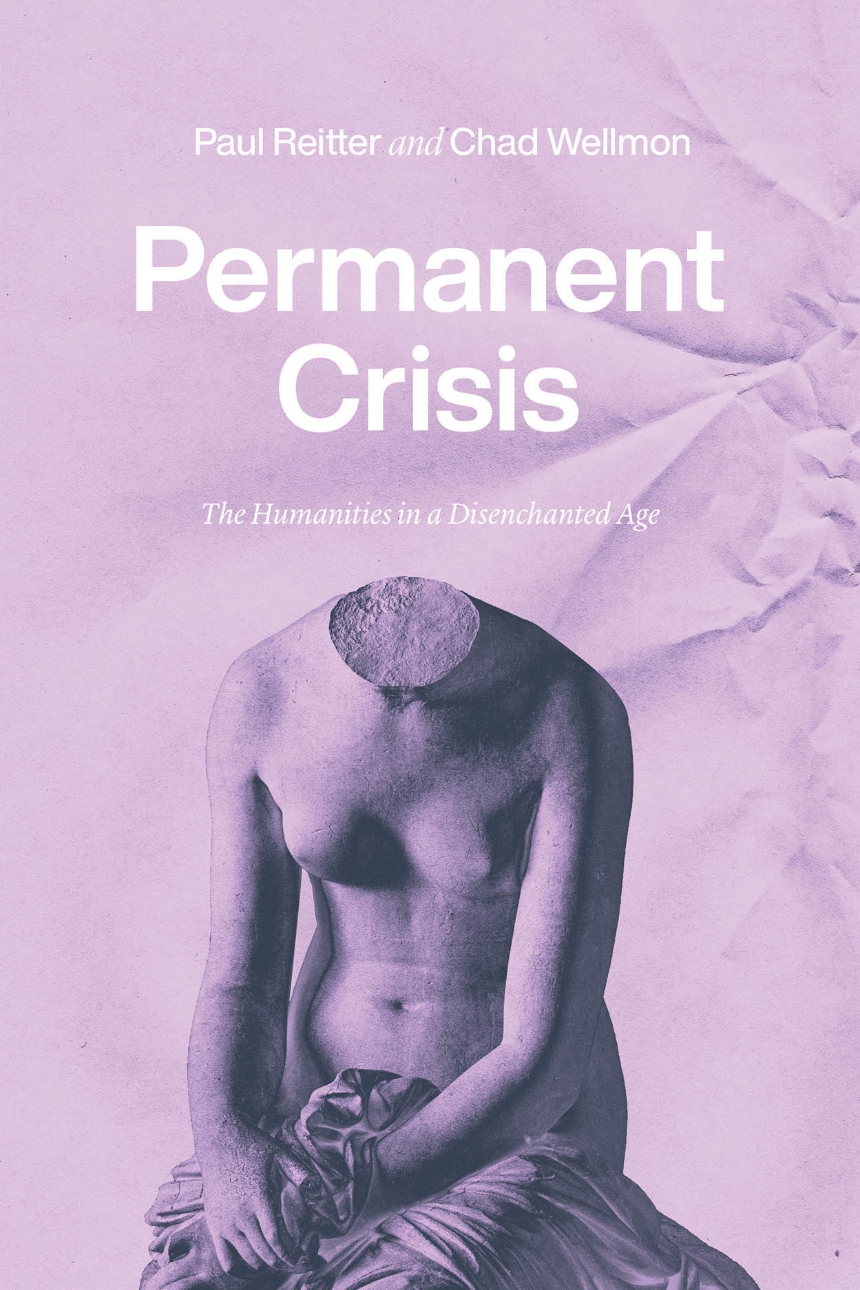Permanent Crisis
The Humanities in a Disenchanted Age
Leads scholars and anyone who cares about the humanities into more effectively analyzing the fate of the humanities and digging into the very idea of the humanities as a way to find meaning and coherence in the world.
The humanities, considered by many as irrelevant for modern careers and hopelessly devoid of funding, seem to be in a perpetual state of crisis, at the mercy of modernizing and technological forces that are driving universities towards academic pursuits that pull in grant money and direct students to lucrative careers. But as Paul Reitter and Chad Wellmon show, this crisis isn’t new—in fact, it’s as old as the humanities themselves.
Today’s humanities scholars experience and react to basic pressures in ways that are strikingly similar to their nineteenth-century German counterparts. The humanities came into their own as scholars framed their work as a unique resource for resolving crises of meaning and value that threatened other cultural or social goods. The self-understanding of the modern humanities didn’t merely take shape in response to a perceived crisis; it also made crisis a core part of its project. Through this critical, historical perspective, Permanent Crisis can take scholars and anyone who cares about the humanities beyond the usual scolding, exhorting, and hand-wringing into clearer, more effective thinking about the fate of the humanities. Building on ideas from Max Weber and Friedrich Nietzsche to Helen Small and Danielle Allen, Reitter and Wellmon dig into the very idea of the humanities as a way to find meaning and coherence in the world.
320 pages | 6 x 9 | © 2021
Education: Higher Education, History of Education
History: History of Ideas
Literature and Literary Criticism: General Criticism and Critical Theory, Germanic Languages
Reviews
Table of Contents
1.The Modern University and the Dream of Intellectual Unity
2. The Lament of the Melancholy Mandarins
3. Philology and Modernity: Nietzsche on Education
4. The Mandarins of the Lab: The Humanities in “the Age of the Natural Sciences”
5. The Consolation of the Modern Humanities
6. Max Weber, Scholarship, and Modern Asceticism
7. Crisis, Democracy, and the Humanities in America
Conclusion
Acknowledgments
Notes
Index
